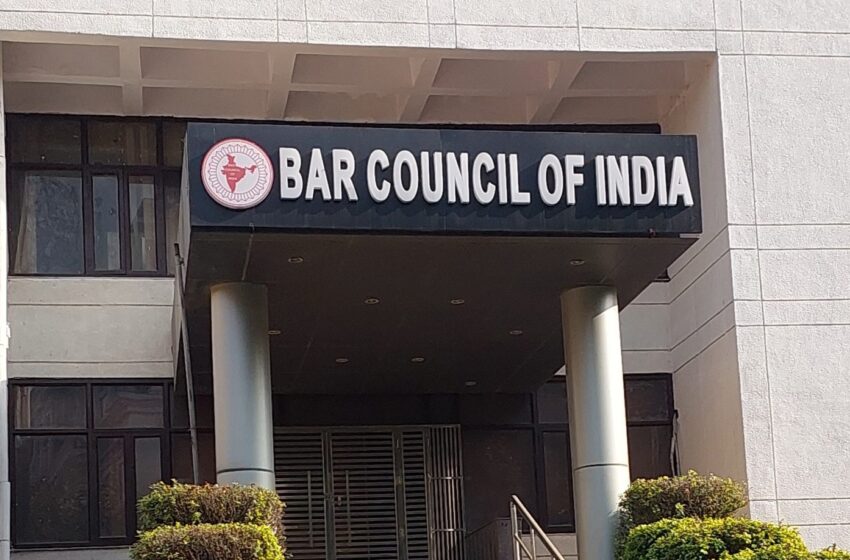
Has mechanism to conduct CLAT in multiple regional languages: BCI
New Delhi, Sep 16 (IANS) The Bar Council of India has offered to conduct the Common Law Entrance Test (CLAT) for admissions to law schools and said that it has a mechanism to conduct it in multiple regional languages.
The BCI has filed an affidavit on a PIL seeking the CLAT 2024 be held in all regional languages listed in the Constitution’s Eighth Schedule, and not just in English.
On September 1, the petitioner’s counsel had argued that since the BCI conducts the All India Bar Examination (AIBE) in several regional languages, the Consortium of National Law Universities conducting CLAT should also make similar efforts.
BCI has said that this arrangement amongst the national law universities has no statutory recognition and that it is the “sole interested statutory body in the field of legal education” but is given no role or supervision in the said admission test.
“That the BCI proposes that it may be permitted to constitute the body of experts through its Legal Education Committee, to hold CLAT wherein the Legal Education Committee council involve some sitting and former Hon’ble Judges, noted educationists of legal education and eminent jurists,” the affidavit stated.
“BCI has the experience of conducting similar examination i.e. AIBE successfully in most fair and transparent manner. It has the mechanism in place to conduct even the entrance/admission test for law courses for all the Institutions imparting legal education in the country through a Common Entrance Test in Various languages as the same will opportunities to more citizens of the country to appear in the exam and pursue law as a career.”
The Council alsosaid that no deserving candidate should be left out of CLAT due to lack of proficiency in English language.
The matter now fixed for hearing on October 6.
On September 1, the High Court had sought the stand of the National Testing Agency (NTA) on the PIL.
A division bench of Chief Justice Satish Chandra Sharma and Justice Subramonium Prasad jad asked the NTA, which conducts competitive examinations like NEET and JEE, to file a reply stating if the questions asked in CLAT can be translated into other languages.
The bench asked the Centre’s lawyer to file a detailed affidavit as it indicated that it has no objection to the prayers made in the petition.
Senior advocate Siddharth Aggarwal, representing the consortium, had contended that while other competitive examinations may use simple translations, CLAT is not based on such a model.
As he argued that holding CLAT in multiple languages involves more than straightforward translation, the court had responded by saying that it would first hear the NTA on the matter.
The court also observed that other competitive examinations, like CLAT, use multiple-choice questions and are conducted in languages other than English.
Last month, the BCI, in an affidavit, had said that if CLAT is conducted in regional languages, it will give opportunities to more citizens to opt law as a career.
It was further submitted that the All India Bar Examination held on February 5, was decided to be conducted in 23 languages including English.
Earlier, the consortium had informed the high court that preparations for the CLAT for the academic year 2024 are well underway, and assured the bench of Chief Justice Sharma and Justice Prasad that it would be capable of devising a thorough roadmap for the eventual inclusion of additional languages in the CLAT examination.
Currently, CLAT is conducted exclusively in English, and the exam for the upcoming 2024 academic year is scheduled to take place in December.
The consortium had said that its advisory board, in collaboration with the governing body and executive committee, will actively address the substantive and procedural challenges and formulate a comprehensive plan to broaden the scope of the CLAT examination.
However, the bench instructed the consortium’s expert committee to address the matter and make a decision during its next meeting while scheduling the next hearing on September 1.
According to the plea, the CLAT examination fails to provide equal opportunities to students whose educational backgrounds are rooted in regional languages.
It contends that the current practice of conducting the CLAT (UG) examination exclusively in English is arbitrary, discriminatory, and violates Articles 14 and 29(2) of the Constitution.
The petitioner also reliesd on a recent survey conducted by IDIA Trust, which indicates that more than 95 per cent of the surveyed students come from schools where English is the medium of instruction at both the secondary and higher secondary levels.
Furthermore, the petitioner argues that the new Education Policy of 2020 and the Right of Children to Free and Compulsory Education Act, 2009 advocate the use of mother tongue as the medium of instruction in schools and higher education institutions.
